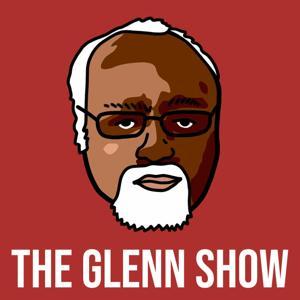In this episode from 2022, Alex speaks with Abigail Hall about propaganda - an elusive and at times far-reaching concept that can be found everywhere: from overt wartime speeches by presidents to covert uses of sports and film to promote the ends of state militarism.
1. “Manufacturing Militarism: U.S. Government Propaganda in the War on Terror” by Christopher J. Coyne and Abigail R. Hall
Link: https://www.amazon.ca/Manufacturing-Militarism-Government-Propaganda-Terror/dp/1503628361
2. “Tyranny Comes Home: The Domestic Fate of U.S. Militarism” by Christopher J. Coyne and Abigail R. Hall
Link: https://www.amazon.ca/Tyranny-Comes-Home-Domestic-Militarism/dp/1503605272
3. Abigail Hall’s Previous Episode on The Curious Task
Link: https://thecurioustask.podbean.com/e/ep-13-abigail-hall-%e2%80%94-how-does-foreign-policy-create-a-boomerang-effect-at-home/
4. “Keep Calm and Carry On” Poster
Link: https://en.wikipedia.org/wiki/Keep_Calm_and_Carry_On
Link: https://en.wikipedia.org/wiki/Uncle_Sam
6. “Smith-Mundt Act” by US Agency for Global Media
Link: https://www.usagm.gov/who-we-are/oversight/legislation/smith-mundt/
7. “Dick Cheney” by Britannica
Link: https://www.britannica.com/biography/Dick-Cheney
8. “Biographies of Secretaries of State: Colin Powell (1937-2021)” by Office of the Historian
Link: https://history.state.gov/departmenthistory/people/powell-colin-luther
9. “Biographies of Secretaries of State: Condoleezza Rice (1954-)” by Office of the Historian
Link: https://history.state.gov/departmenthistory/people/rice-condoleezza
10. “Pat Tillman” by Britannica
Link: https://www.britannica.com/biography/Pat-Tillman
11. “The Life and Death of Phil Strub” by Spy Culture
Link: https://www.spyculture.com/the-life-and-death-of-phil-strub/
12. “Windtalkers” by IMDb
Link: https://www.imdb.com/title/tt0245562/
Link: https://www.imdb.com/title/tt0092099/
14. "Transformers" by IMDb
Link: https://www.imdb.com/title/tt0418279/



























